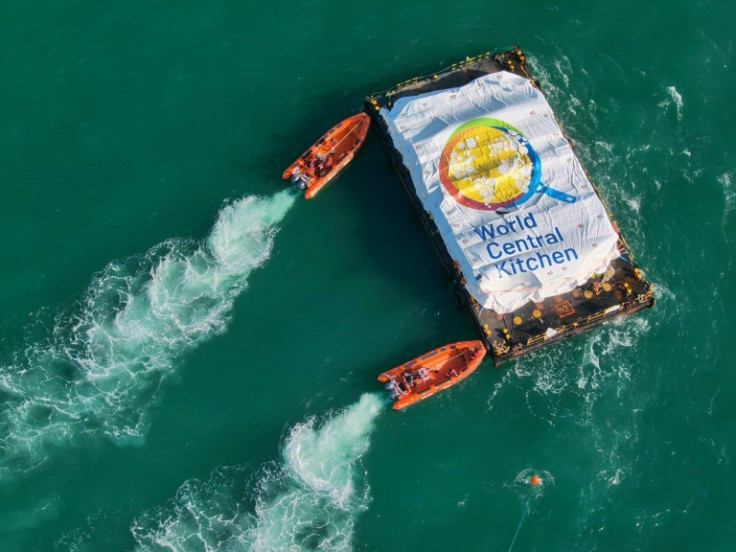As Concerns Of Famine Rise, Second Ship Destined For Gaza Departs From Cyprus

A convoy of three ships departed from Cyprus headed for Gaza on Saturday, carrying 400 tons of food and various supplies. This marks the second such delivery recently, underscoring mounting concerns about the looming threat of famine in the region.
The initial ship carrying aid arrived at the shores of Gaza on March 16, and the organization has pledged to continue providing further assistance. Organized by World Central Kitchen (WCK), the aid deliveries consist of ready-to-eat items such as rice, pasta, flour, legumes, canned vegetables, and proteins.
According to The Associated Press, these supplies are capable of preparing more than 1 million meals. The shipment also included dates, which hold traditional significance as they are typically consumed to break the daily fast during Ramadan. Ramadan is expected to conclude on April 8.
The convoy marks the second shipment organized by WCK and its founder, celebrity chef José Andrés.
The United Nations and its partners have sounded the alarm, cautioning that famine could emerge in the devastated and largely cut-off northern Gaza region as early as this month. Humanitarian officials stress that current deliveries by sea and air are inadequate, emphasizing the critical necessity for Israel to allow a much larger volume of aid to pass through land routes. In response to the worsening humanitarian crisis, the top U.N. court has mandated Israel to open more land crossings and undertake other actions to alleviate the situation.
During an airdrop operation on Friday, the U.S. military announced that it had delivered more than 100,000 pounds of aid on that day alone, contributing to a total of nearly a million pounds released overall. This effort is part of a collaborative initiative involving multiple countries.
The US State Department announced on Friday, a day after the world's top court ordered Israel to allow food aid into the territory, that famine is likely already present in at least some areas of northern Gaza, with other regions at risk of falling into conditions of starvation. "While we can assert with confidence that famine is a significant risk in the south and center but not present, in the north, it is both a risk and quite possibly is present in at least some areas," a State Department official had informed Reuters.
Despite Israeli claims that it is facilitating sufficient access to food and other aid into Gaza, the comments from Washington suggest a different perspective.
Meanwhile, Jordanian Foreign Minister Ayman Safadi stated that the "famine" in Gaza could be swiftly achieved if Israel were to open the land crossings for aid to enter.
Currently, aid enters the Strip following inspections by Israeli authorities at Egypt's Rafah crossing, Israel's Kerem Shalom crossing, and a recently established crossing near the southern community of Be'eri, reported Times of Israel.
The recent famine warnings coincide with Israeli Prime Minister Benjamin Netanyahu's approval of new discussions on a ceasefire in Gaza. Despite this, heavy fighting persists in the strip, including clashes occurring at several hospitals.
© Copyright IBTimes 2025. All rights reserved.






















